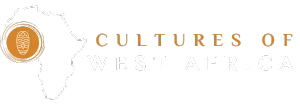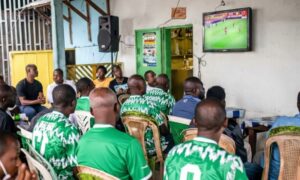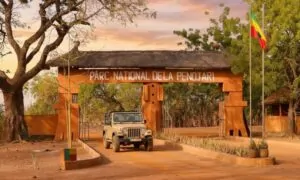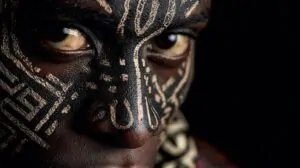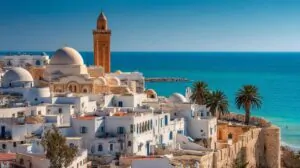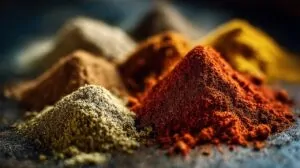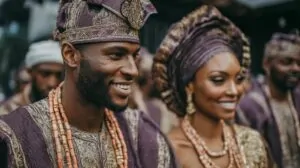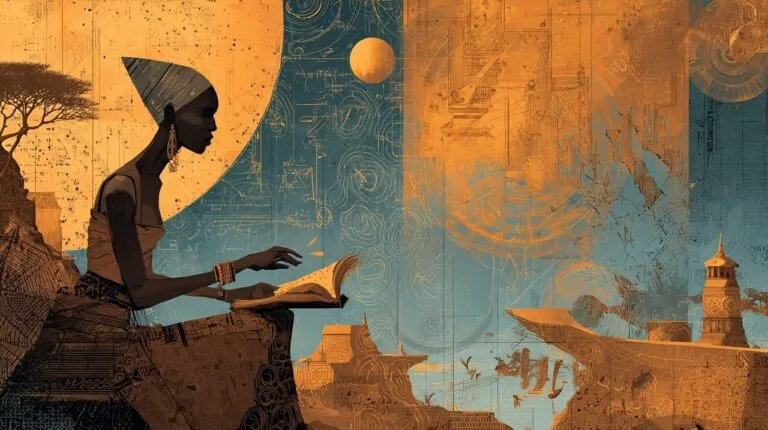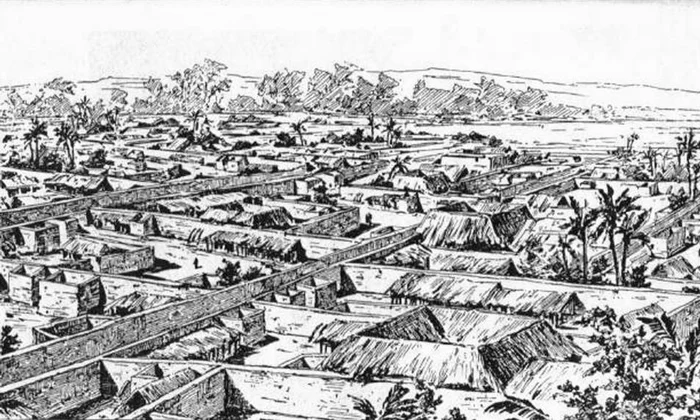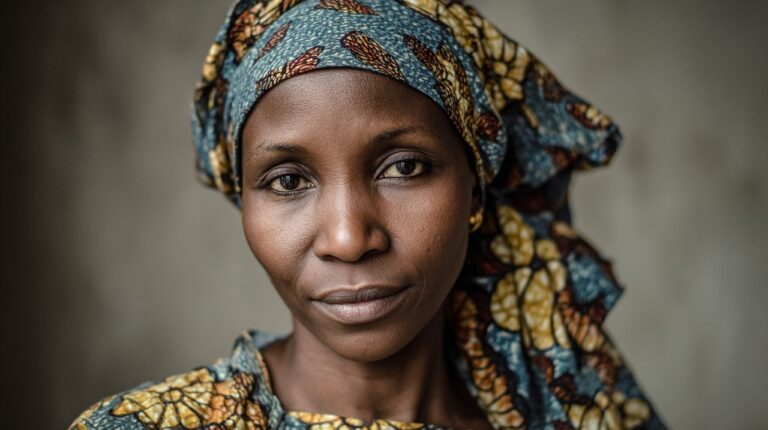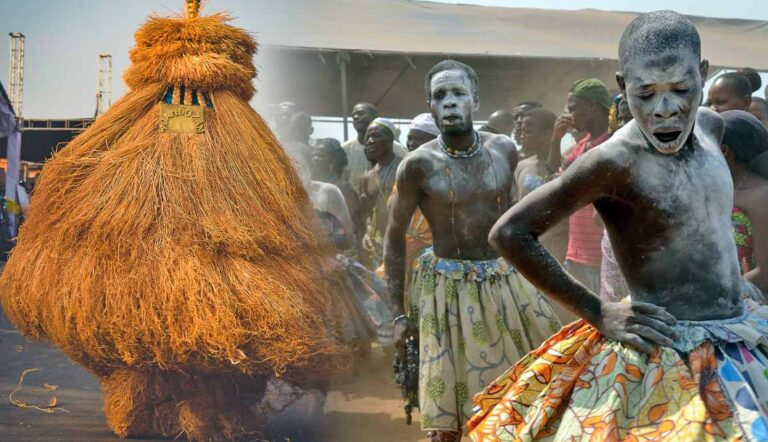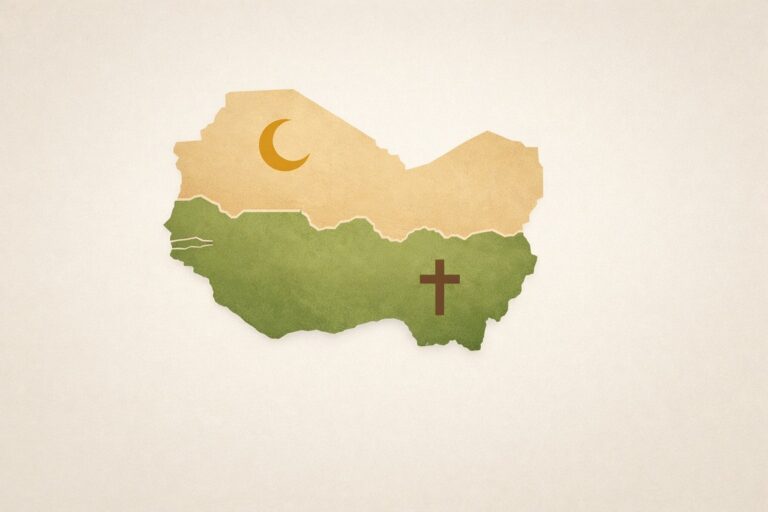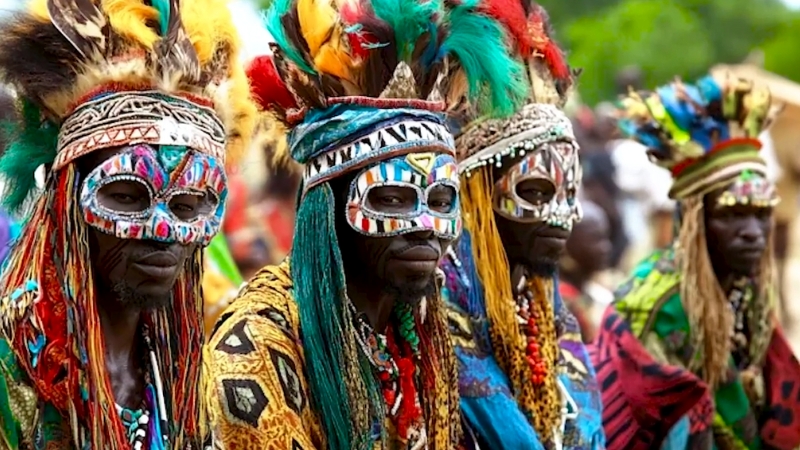
The Kanuri people are one of the oldest and most historically influential ethnic groups in West Africa, known for their deep roots in the Lake Chad Basin, their legacy as rulers of the Kanem-Bornu Empire, and their strong cultural identity that has endured for over a thousand years.
Table of Contents
ToggleToday, they number around 10–12 million, spread across northeastern Nigeria, Niger, Chad, and Cameroon, with smaller communities found as far as Sudan and Libya. The Kanuri are not a people defined by borders; they are defined by history.
Their traditions, language, and political organization once anchored one of Africa’s most stable empires, influencing trade, religion, and learning across the entire Sahel region.
Origins and Early History
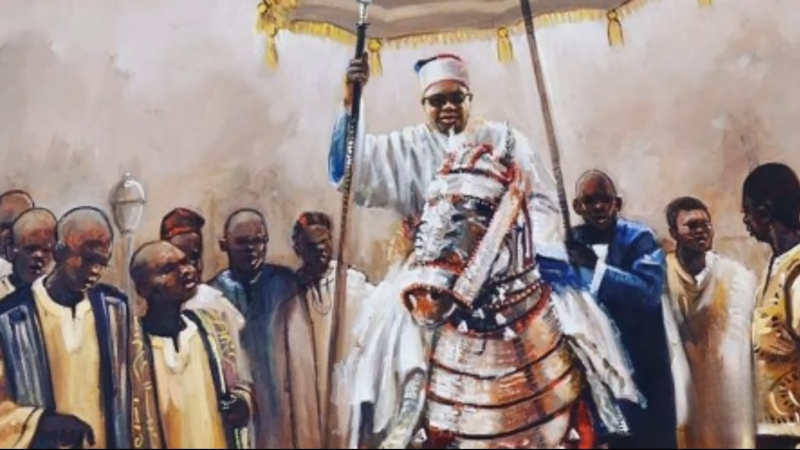
The story of the Kanuri begins in the ancient Kingdom of Kanem, around Lake Chad, as early as the 9th century. Archaeological and written records show that this kingdom, led by the Sayfawa dynasty, became one of the earliest organized states in sub-Saharan Africa.
By the 11th century, Kanem was already a powerful player in the trans-Saharan trade routes, exporting ivory, slaves, ostrich feathers, and salt north to Tripoli and Egypt, and importing horses, weapons, and textiles.
The dynasty eventually converted to Islam, and this new faith became a cornerstone of Kanuri identity, governance, and education.
Around the 14th century, political strife forced the Sayfawa rulers to move their capital west of Lake Chad, founding Bornu, which became the next great phase of Kanuri civilization.
The Kanem-Bornu Empire that followed lasted for more than six centuries, thriving through diplomacy, trade, and military innovation.
| Period | Center of Power | Ruler or Dynasty | Historical Significance |
| 9th–13th c. | Kanem (east of Lake Chad) | Sayfawa dynasty | Birthplace of the Kanuri civilization |
| 14th–18th c. | Bornu (west of Lake Chad) | Mai Idris Alauma & successors | Height of the Kanuri empire, Islamic law, and scholarship |
| 19th–20th c. | Borno Emirate | Shehu of Borno | Continuation under colonial and modern systems |
The Kanem-Bornu Empire – Power, Faith, and Stability
At its height under Mai Idris Alauma (1564–1596), the Kanem-Bornu Empire was a regional superpower. Alauma reformed the military, introduced metal armor for cavalry, strengthened Islamic courts, and established schools for Quranic education.
His administration made Bornu an example of organized Islamic governance centuries before European colonial powers arrived.
The empire’s capital, Ngazargamu, near modern Maiduguri, became a center of learning and diplomacy. Scholars from North Africa and the Middle East visited Bornu’s courts. Trade routes from Tripoli, Fezzan, and Timbuktu intersected there, bringing wealth and ideas.
Even when European colonization broke Africa into artificial states, the Kanuri adapted. The Shehu of Borno, a descendant of the Sayfawa rulers, still holds cultural and spiritual authority today, a living reminder of their imperial legacy.
Language and Identity
The Kanuri speak Kanuri, a member of the Saharan branch of the Nilo-Saharan language family, with dialects such as Yerwa Kanuri, Manga Kanuri, and Bilma Kanuri. It remains a strong symbol of identity, spoken in homes, schools, and mosques.
Kanuri is a rhythmic, tonal language with poetic expression and rich oral traditions. Proverbs and storytelling are central to how wisdom is passed down. For example:
“A man who forgets his roots forgets his honor.”
This proverb reflects the Kanuri emphasis on lineage, reputation, and communal respect.
Islamic vocabulary is deeply woven into the language, showing how religion and culture are inseparable in Kanuri society.
Religion and Spiritual Life
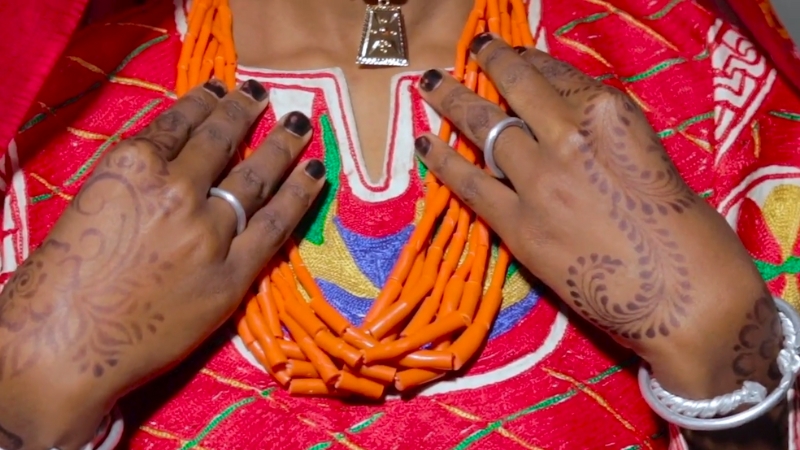
Nearly all Kanuri are Muslims, and Islam has shaped their worldview for nearly a thousand years. Religious education begins early: children attend Quranic schools, where they learn to recite and write Arabic before progressing to secular studies.
Islamic festivals like Eid al-Fitr and Eid al-Adha are celebrated with communal prayers, drumming, and elaborate feasts of millet, lamb, and dates. Religious leaders, known as ulama and imams, play major roles not just in worship but in mediation, moral guidance, and even politics.
However, older beliefs, such as respect for spirits (iskoki), ancestral blessings, and protective charms (laya), still survive, especially in rural areas. This spiritual blend gives Kanuri Islam a distinct local character, rooted in centuries of cultural continuity.
Social Structure and Family Life
Kanuri society is traditionally hierarchical but tightly knit, built around family and community loyalty. The Shehu (emir) is the cultural figurehead, supported by a council of elders and clerics.
Socially, Kanuri communities consist of:
| Group | Role |
| Rulers and Nobles | Political and religious authority |
| Scholars and Clerics | Guardians of Islamic learning |
| Traders and Artisans | Economic backbone of towns |
| Farmers and Herdsmen | Sustaining local food and livestock systems |
Family ties are strong. Households are often extended, with multiple generations living together.
Respect for elders is deeply ingrained, and decision-making follows collective consensus. Marriages are celebrated as family alliances, often arranged, with elaborate dowries (sadaki) paid in livestock, cloth, or gold.
Economy and Daily Life
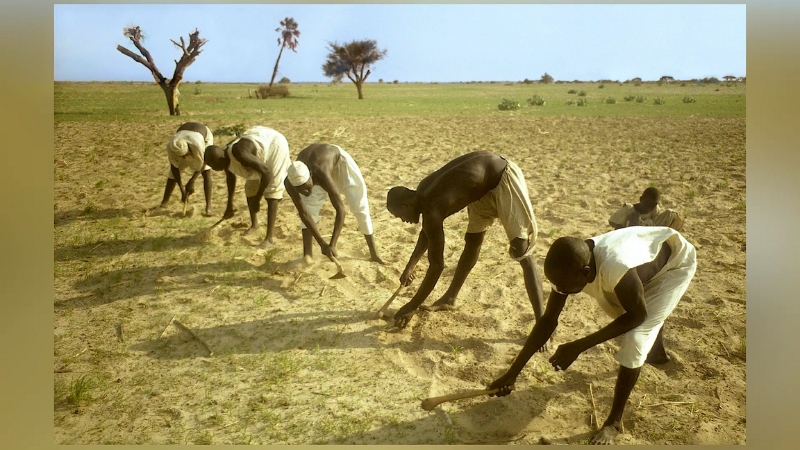
The Kanuri have long balanced agriculture, trade, and pastoralism. Their homeland, centered around the fertile edges of Lake Chad, allows for crops like millet, sorghum, maize, beans, and onions. The lake itself provides fish and irrigation water, supporting both nomads and farmers.
Historically, Kanuri traders controlled key caravan routes linking the Sahel to North Africa, dealing in salt, leather, and slaves. In modern times, Kanuri people are active in commerce, education, and politics, especially in cities like Maiduguri, Diffa, and N’Djamena.
| Economic Activity | Description |
| Farming | Millet, beans, groundnuts, onions |
| Livestock | Cattle, goats, camels for trade |
| Crafts | Leatherwork, weaving, blacksmithing |
| Trade | Salt, spices, textiles, fish |
| Modern Occupations | Civil service, education, business |
Dress, Art, and Architecture
Kanuri attire reflects both Islamic modesty and Sahelian elegance. Men often wear flowing gowns (boubous), embroidered caps, and carry prayer beads.
Women favor bright wrappers, headscarves, and henna tattoos, with jewelry made of silver or coral.
Traditional Kanuri architecture once defined Bornu’s cities, mudbrick palaces, arched doorways, and geometric motifs inspired by both African and Islamic design.
Even today, homes in Maiduguri’s old quarters echo this heritage, with shaded courtyards and domed roofs designed for the harsh Sahel climate.
Food and Hospitality
Kanuri cuisine is hearty, practical, and communal. Staples like tuwo (thick millet porridge) are eaten with rich sauces made from okra, groundnuts, or dried fish.
Dishes such as masa (rice cakes) and suya (spiced grilled meat) are common at festivals and gatherings.
Hospitality is a moral duty; a visitor is always offered water or food before conversation begins. Refusing is considered impolite. This generosity is part of what defines Kanuri culture: warmth even amid hardship.
Festivals and Cultural Expressions
While Islam shapes much of Kanuri celebration, cultural festivals still hold local importance. The Durbar, a horseback parade held during Eid or royal events, showcases Kanuri pride, horsemanship, and traditional drumming.
Dance, though often restrained due to Islamic customs, remains part of weddings and harvest celebrations. Drums, flutes, and the kakaki (a long metal trumpet) accompany songs praising bravery and lineage.
Modern Challenges and Resilience
The Kanuri heartland in northeastern Nigeria and around Lake Chad has faced major challenges in recent decades, from climate change and shrinking water resources to conflict and displacement.
The insurgency in the Lake Chad region has deeply affected Kanuri communities, leading to loss of livelihoods and migration. Yet, even in refugee camps, Kanuri identity remains strong: people rebuild schools, continue Friday prayers, and teach their language to the next generation.
Kanuri youth today are also redefining their role in entering universities, politics, and international organizations, advocating for peace and cultural preservation. The sense of heritage that once built an empire still drives a deep pride in who they are.
Bottom Line
@connect_kwara The Kanuri people are just soo beautiful 😍😍 – where can we find them in Kwara ?? #reels #kwaraconnect #ilorinemiratedurbar2025 #ilorin #ilorinvendors #viral #reelsviralシfb ♬ original sound – Kwara Connect
The Kanuri are not just a people of history; they are a people of continuity. From the royal courts of Bornu to modern Maiduguri’s busy markets, their resilience and identity endure.
They gave the Sahel its first organized Islamic state, produced scholars who influenced the region for centuries, and still uphold a way of life that values faith, hospitality, and dignity.
Like the Fulani people, whose pastoral traditions shaped vast parts of West Africa, the Kanuri have maintained their cultural roots despite the pressures of modern borders and shifting political landscapes.
Their story reminds us that African civilization did not begin with colonial borders; it began with cultures like the Kanuri, who built systems of governance, education, and community long before the modern state existed.
Related Posts:

